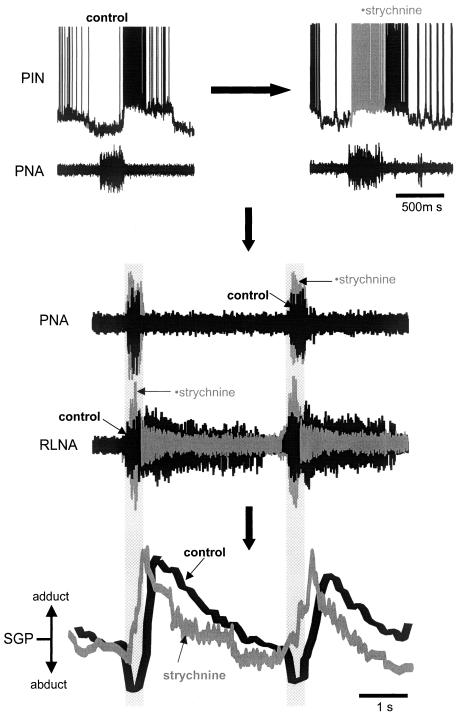Fig. 2.
Respiratory modulation of the upper airway is distorted after blockade of glycine receptors. Glycine receptor blockade causes post-inspiratory neurones (PIN) to fire in inspiration, enhances inspiratory but depresses postinspiratory discharge in the recurrent laryngeal nerve (RLN) and causes a paradoxical inspiratory adduction as indicated by an increase in subglottal pressure (SGP) during PNA. Black traces are control and grey traces represent the changes observed after glycine receptors were blocked with strychnine (0.5 μM) or isocapnic hypoxia (5% oxygen, 5% carbon dioxide and 90% nitrogen). Shaded areas indicate neural inspiration.

